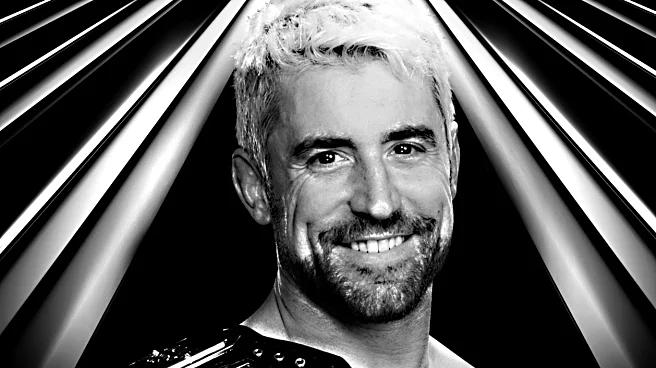What's Happening?
Netflix has released a new four-part miniseries titled 'The Monster of Florence,' directed by Stefano Sollima and Leonardo Fasoli. The series revisits the infamous unsolved murders that occurred in Florence between
1968 and 1985, where a killer targeted couples in secluded areas. The murders, characterized by their brutality, sparked nationwide panic and led to various theories, including satanic rituals and police incompetence. Despite several arrests, the case remains unsolved, and the series aims to explore the cultural and societal implications of these crimes rather than solve the mystery.
Why It's Important?
The 'Monster of Florence' case is significant as it highlights issues of societal fear, obsession, and conspiracy theories that have persisted in Italy for decades. The series brings attention to the cultural context of the crimes, including themes of patriarchy and sexual repression. By focusing on the suspects' perspectives, the series challenges viewers to consider the broader implications of such crimes on society. The case has inspired numerous adaptations and continues to captivate audiences, reflecting a global fascination with true crime stories and the psychological aspects of serial killers.
What's Next?
The series is expected to spark renewed interest in the case, potentially leading to further investigations by those still connected to the victims. The portrayal of the crimes from the suspects' perspectives may provoke discussions on the ethical considerations of true crime storytelling. As the series gains international attention, it may influence future adaptations and inspire new narratives that explore unsolved mysteries and their impact on society.
Beyond the Headlines
The series delves into deeper cultural issues, such as the role of patriarchy and the repression of sexuality in shaping societal responses to crime. It also examines the ethical challenges of representing real-life horror in entertainment, emphasizing the importance of factual accuracy and the potential risks of sensationalizing tragedy. The creators aim to provide a reflective narrative that encourages viewers to confront the realities of evil and its cultural roots.










